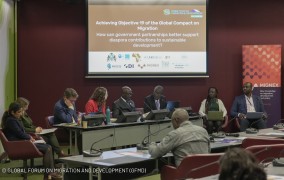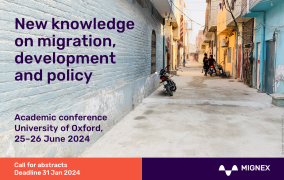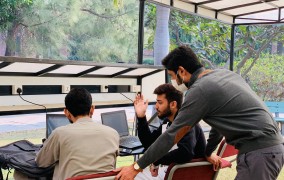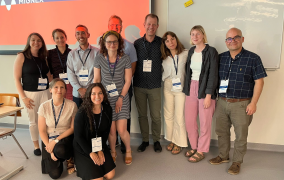News
Three surprising lessons from our pilot in Cabo Verde
The MIGNEX survey will cover 12,500 young adults. Given how central this data is in MIGNEX analysis, we are piloting the survey in three distinct contexts: Afghanistan, Cabo Verde and Ghana. The first pilot on the island of São Vicente resulted in three unexpected lessons.
Much of our preparations for the MIGNEX survey in the past few months focused on the survey instrument: the formulation and translation of questions, the length of the survey, sensitivity of questions and sequencing of survey items. And in the lead-up to the pilot we were most anxious about whether our survey instrument would ‘work’.
In mid-February we got to pilot the MIGNEX survey in São Vicente, together with an excellent local team from PD Consult. As to be expected, some survey items have to be rephrased and simplified. But, on the whole, it worked.
Sampling was the hardest part
Instead sampling turned out to be the most challenging aspect of the survey. From scrambling up rocks not visible on our satellite maps to the absence of our target group in the daytime, our survey team worked hard to get the required interviews. Applying a random walk in practice is a different beast to how it looks on paper, having to consider aspects such as what constitutes a path, how many households live in a dwelling, whether a door is a front or back door. We will be reflecting on this in the weeks to come.
Some jargon works
We have put a lot of effort into making the MIGNEX survey easy to understand and conversational. Yet, in trying to cover all areas needed for analysis, some difficult technical terms crept in, including ‘job creation’, ‘economic opportunities’ and ‘climate change’. Less educated respondents did indeed struggle with some of these terms, but climate change was pretty much universally understood. Wholy unexpected, ‘floods’ was a term a number of respondents struggled with, though this probably has more to do with Cape Verde’s climate and topography.
Assets are fine, but hunger is not
In preparing the survey instrument, we were concerned about sensitivity of some survey items, carefully considering their wording and placement. Most of our concerns were unfounded; the Cabo Verde respondents happily told us which assets they owned and passionately engaged in the questions on gender values. Instead, respondents were reluctant to give a subjective assessment of their financial situation, and to respond to a question about food security. It will be interesting to see what we find in Afghanistan and Ghana.



